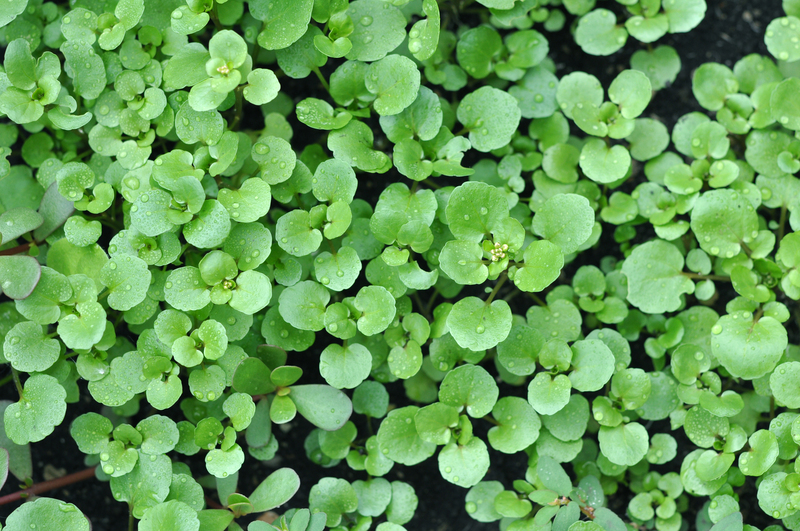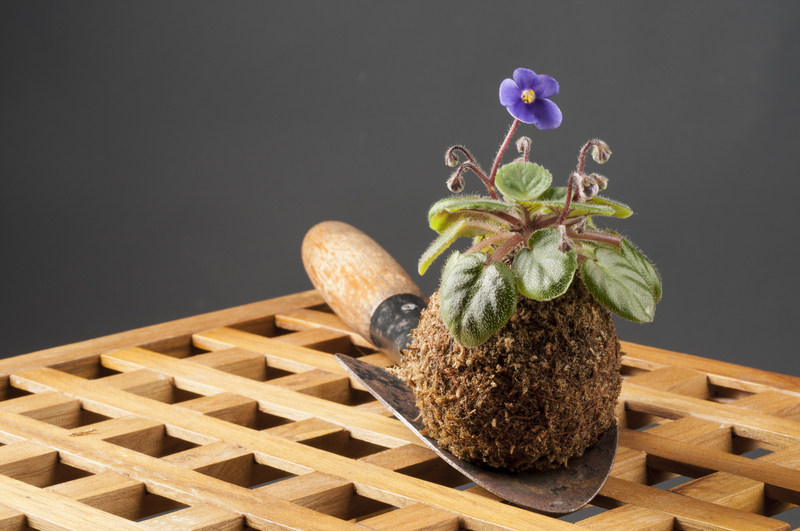Three Innovative Tips for Ultimate Weed Control
Posted on 07/09/2025
Three Innovative Tips for Ultimate Weed Control
Weeds are an age-old enemy of both amateur gardeners and professional landscapers alike. They not only hinder the growth of desired plants but also consume vital nutrients, water, and sunlight. Maintaining a weed-free garden or landscape may seem like an uphill battle, but modern advancements and fresh approaches are making it easier than ever. This comprehensive guide dives deep into three innovative tips for ultimate weed control that can revolutionize your gardening strategy, saving you time and effort while ensuring lush, healthy plants.
Why Is Ultimate Weed Control Important?
Before exploring innovative solutions, it's crucial to understand the impact of effective weed control. Unchecked weed growth can:
- Reduce crop yields in vegetable and fruit gardens.
- Outcompete ornamental plants for nutrients and space.
- Harbor pests and diseases harmful to companion plants.
- Make landscapes look neglected and overgrown.

The Three Most Innovative Weed Control Strategies
Let's dive into the ultimate weed management strategies every gardener should know. These methods go beyond traditional approaches like hand weeding or blanket herbicide use, emphasizing efficiency, sustainability, and innovation.
1. Smart Mulching: Beyond Traditional Barriers
We all know that mulching is effective in suppressing weeds, but the new generation of mulching techniques takes this time-tested method further. These solutions not only block sunlight but can also enhance soil health, repel pests, and decompose to feed plants over time.
- Living Mulch: Planting dense, low-growing ground covers like clover, creeping thyme, or purslane between crops or in flower beds acts as a living barrier. These plants can outcompete weeds while enriching the soil.
- Biodegradable Mulch Films: Made from plant-based materials, these films break down naturally, adding organic matter to the soil and reducing plastic waste.
- Colored Mulch for Weed Suppression: Recent studies show that certain colors of mulch, such as red or black, are more effective at blocking light and heat, further deterring weed growth and enhancing plant vitality.
How to maximize this technique for advanced weed control:
- Choose the right mulch for your plants. For instance, wood chips are excellent for trees and shrubs, while straw or grass clippings suit vegetable gardens.
- Apply a thick layer (2-4 inches) to block weed seeds from accessing sunlight.
- Combine mulch with a weed barrier fabric for enhanced, long-term protection, especially in challenging areas.
Innovative mulching not only delivers premium weed prevention but also encourages healthy soil ecology, making it a win-win for eco-conscious gardeners.
2. Harnessing Technology: AI, Drones, and Smart Tools
We're in the midst of a technological revolution in gardening and landscaping. The rise of smart devices and automation presents powerful allies in the quest for complete weed management. Here's how to use modern tools to gain the upper hand:
- Robotic Weeders: Devices like the Tertill Garden Weeder roam garden beds autonomously, using sensors to distinguish between crops and weeds. These robots target only the unwanted plants, leaving your garden undisturbed.
- AI-Powered Weed Detection Apps: Several smartphone applications now identify plant species via photos, helping gardeners quickly spot intrusive weeds and receive guidance on removal methods.
- Drone Surveillance: For large properties or commercial farms, drones provide aerial imaging to detect weed infestations early, allowing targeted control rather than broad-spectrum chemical applications.
- Infrared and Precision Spraying: Innovative sprayers use sensors to only apply herbicides where weeds are present, saving time, protecting beneficial plants, and minimizing environmental impact.
Benefits of Technological Weed Management:
- Precision: Target only the weedy areas, reducing labor and chemical use.
- Sustainability: Minimize negative environmental effects by avoiding blanket spraying.
- Efficiency: Save hours of manual work and catch weed outbreaks before they spread.
Investing in automation and smart technology for effective weed control transforms gardening into a high-efficiency operation, bringing professional results to hobbyists and experts alike.
3. Bioherbicides and Allelopathy: Nature's Own Weed Killers
One of the most innovative strategies in advanced weed suppression is using nature's own defenses. Bioherbicides and allelopathic plants are at the forefront of this movement, offering organic alternatives to traditional chemical herbicides.
- Bioherbicides: These are naturally derived substances--such as bacteria, fungi, or plant extracts--that specifically target weed species. They are biodegradable and often safe for crops, soil, and beneficial insects.
- Allelopathic Cover Crops: Certain cover crops, like rye, mustard, and buckwheat, release natural chemicals that inhibit weed seed germination. Planting these in your off-season vegetable bed can significantly reduce weed pressure for the upcoming growing season.
- Vinegar and Natural Solutions: While not strictly a bioherbicide, horticultural vinegar (20% acetic acid) and other acidic solutions can help directly manage small outbreaks, making them an essential part of organic weed strategies.
How to Apply These Natural Weed Prevention Methods:
- Research local regulations and suitability for your growing zone. Not all bioherbicides are approved everywhere, and some allelopathic plants may not be suitable for every climate.
- Rotate and diversify your cover crops to achieve maximum long-term weed suppression without harming soil diversity.
- Monitor results and supplement with manual or mechanical controls if needed, as these methods may require repeated applications or specific timing.
Bioherbicides and allelopathic crops offer ultimate weed resistance naturally, empowering gardeners to create truly sustainable and vibrant landscapes.
Bonus Tips: Complementary Methods for Best Results
In addition to the three primary innovative weed control methods, synergize your efforts by incorporating some time-tested and eco-conscious strategies:
- Crop Rotation: Discourage persistent weed species by altering planting schedules and crops.
- Dense Planting: Shade out weeds by reducing bare soil between desired plants.
- Timely Watering: Use drip irrigation or soaker hoses to deliver water directly to plant roots--not weeds.
- Regular Inspection: Early detection remains one of the best weed defense tactics.

Frequently Asked Questions About Advanced Weed Suppression
What are the best tools for precision weed removal?
Advanced hoes, robotic weeders, and flame weeders are among the most effective modern tools for exact weed removal with minimal soil disturbance.
Is it possible to control weeds without chemicals?
Absolutely! Using a combination of deep mulching, natural herbicides, smart technology, and strategic planting can help achieve chemical-free weed management.
How do I select the right bioherbicide for my garden?
Consult local agricultural extension services or sustainable gardening resources. Select products appropriate for your weed species, region, and crop type, and always follow label instructions for safe and effective use.
Conclusion: Choose Your Weed Control Revolution
From smart mulching techniques and high-tech weed detection to nature-based solutions, there's never been a better time to adopt innovative weed control methods. By integrating these strategies into your gardening routine, you'll unlock the secret to a clean, healthy, and productive landscape--where weeds are managed quickly, sustainably, and effectively.
Ready to transform your garden? Choose one or more of these new-generation techniques for the ultimate in weed management and enjoy the lushest, healthiest plants ever!
- Smart Mulching Techniques extend protection and soil health far beyond traditional methods.
- Embrace Technology for hands-free, precise results that save you time and effort.
- Nature-Driven Weed Control harnesses bioherbicides and allelopathic crops for chemical-free success.
Combine these innovations and you'll experience truly ultimate weed control--where weeds fade away, leaving your plants and your garden at their best.
Latest Posts
Vertical gardening for a lush urban escape
Turning Your Yard into a Kid-Friendly Adventure Zone
Maximize Your Gardening Success with These Key Tools



